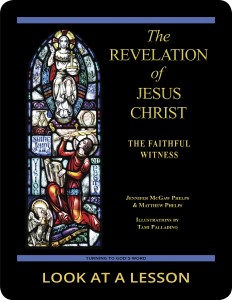afterthought
 In the Gospel According to Matthew, Jesus speaks multiple times about the necessity of repentance or change of mind. Specifically, this idea of a change of mind is related to the concept of an afterthought, and it comes up in the Gospel According to Matthew 11:20–21 (NABRE).
In the Gospel According to Matthew, Jesus speaks multiple times about the necessity of repentance or change of mind. Specifically, this idea of a change of mind is related to the concept of an afterthought, and it comes up in the Gospel According to Matthew 11:20–21 (NABRE).
The Greek word for repentance is μετάνοια (metanoia), which literally means “thinking after” or “afterthought.” The main idea conveys thinking differently following some action. It’s very similar to the Latin idea that forms the root of the word repentance, though there’s a difference in emphasis. The Latin view emphasizes rethinking an action, while the Greek view emphasizes thinking differently after something has been done.
What emphasis does Jesus place on rethinking or repentance in this week’s passage? Why do you think it is that repentance is becoming a theme at this point in the Gospel narrative? What place does repentance play in your spiritual life?
related topics: repentance; sin
you also may like our study of the book of Revelation
 The Revelation of Jesus Christ: The Faithful Witness, a 23-lesson Catholic Bible study with an imprimatur, examines ways in which our traditional Christian view of heaven is built on Hebrew apocalyptic visions recorded in the Old Testament. This recently revised study includes maps and additional commentary and takes a close look at the role of the prophets in present-day Christianity. Illustrations by Tami Palladino depict the often-misunderstood images in the book of Revelation. Click on the book’s cover to view a sample lesson.
The Revelation of Jesus Christ: The Faithful Witness, a 23-lesson Catholic Bible study with an imprimatur, examines ways in which our traditional Christian view of heaven is built on Hebrew apocalyptic visions recorded in the Old Testament. This recently revised study includes maps and additional commentary and takes a close look at the role of the prophets in present-day Christianity. Illustrations by Tami Palladino depict the often-misunderstood images in the book of Revelation. Click on the book’s cover to view a sample lesson.
 Click on the picture of the statue of Moses with horns (above) to learn more about Lost in Translation. A new entry is archived each Monday. Contact us to receive Lost in Translation by email every week. You may use any of the contact links on our website to ask Matthew a question.
Click on the picture of the statue of Moses with horns (above) to learn more about Lost in Translation. A new entry is archived each Monday. Contact us to receive Lost in Translation by email every week. You may use any of the contact links on our website to ask Matthew a question.
